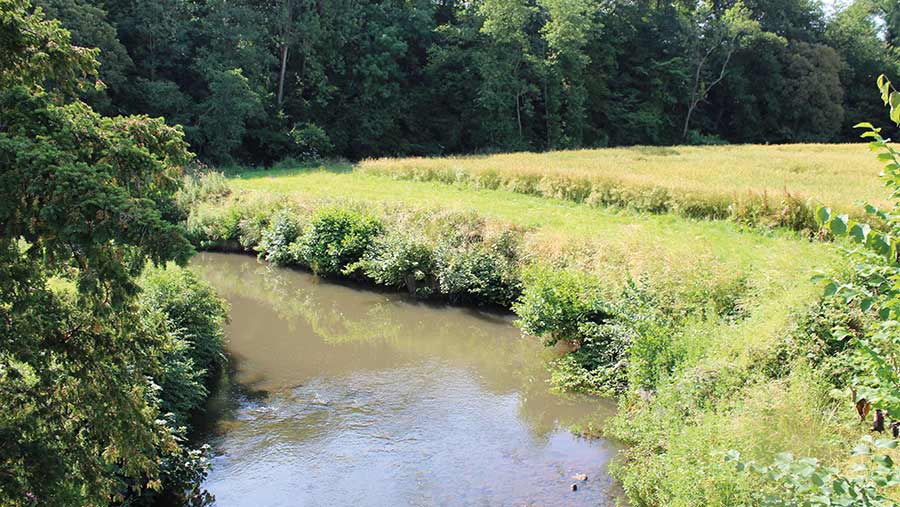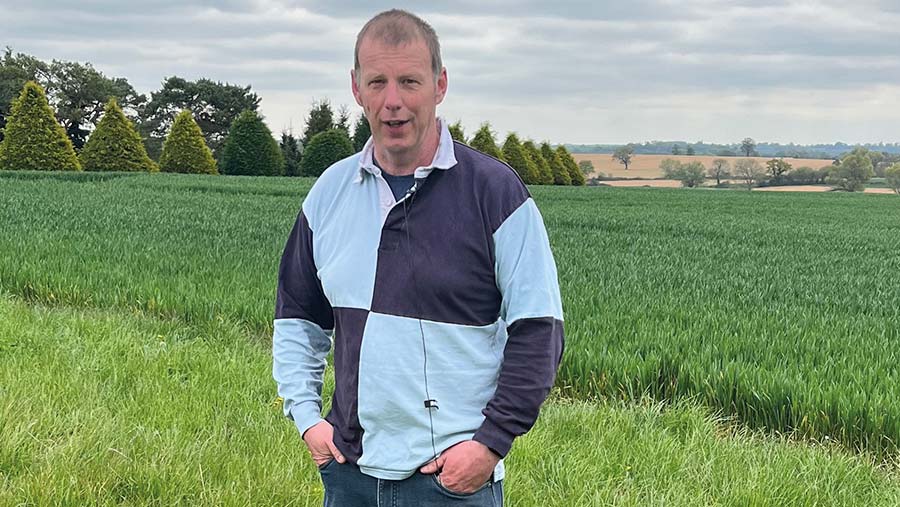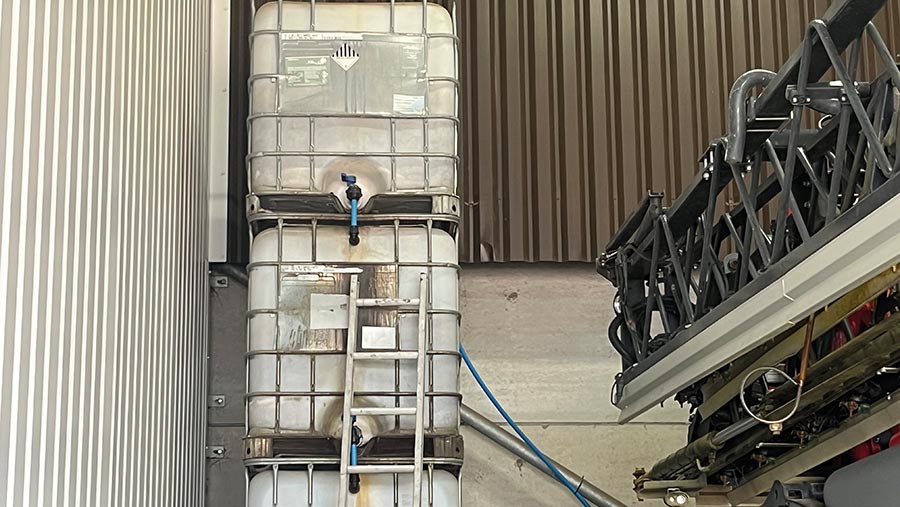Water company offers funding for regen farming practices
 © Severn Trent
© Severn Trent Thousands of farmers could benefit from a new funding scheme from water company Severn Trent designed to help growers and livestock producers protect the environment.
The Regenerative Pathway package builds on a number of environmental initiatives introduced by the company.
These include its Farming for Water and Steps schemes, which support farmers who protect river health and drinking water.
The new package aims to help more farmers in the Severn Trent region adopt regenerative farming practices – making their businesses more financially and environmentally resilient as basic payments are phased out across England.
See also: Woodland Creation Offer: What farmers need to know
Payments to support regenerative farming
- Minimising soil disturbance – margins, beetle banks and non-inversion techniques
- Livestock integration – arable reversion, diverse herbal leys and fencing
- Maintain living roots – margins, cover crops and mini meadows
- Soil surface protection – margins, cover crops and mini meadows
- Introducing diversity – cover crops, bee and bird food, trees
Financial sense
Other companies are expected to offer similar incentives to farmers in the future.
The Severn Trent package is an example of “private money for public goods” – where businesses are increasingly willing to pay farmers for looking after the environment.
Improved river water quality is just one benefit. For every £1 Severn Trent spends on catchment management schemes, the company says it saves up to £20 in water treatment costs, plus a further £4 in wider environmental benefits.
Financial and environmental pressure means farmers are increasingly having to embark on new ways of farming.
Severn Trent catchment management lead Jodie Rettino says the new scheme includes guidance for farmers who adopt new management practices.
“It might be access to finance or to advice, or both,” she says. “They may need to make up-front investments for their new approach or understand more about what practices will work on their land and allow them to meet environmental targets.”
Carbon credits
Participating farmers will be able to tap into carbon credits and payments for biodiversity net gain.
Severn Trent says farmers could receive multiple payments on the same land – as long as it is managed to scheme guidelines and provides ecosystem services.
The new package will be available to as many as 9,000 farmers across all of Severn Trent’s catchments, with selected partners and the company’s specialist advisers being used to help deliver results.
The first confirmed partner is Agreena. It works with farmers to produce soil carbon credits generated by regenerative farming practices.
Eligible farmers will be able to sign up to the Agreena platform free for the first 12 months.
Having reduced their greenhouse gas emissions, farmers who work with Agreena then own the credits created on their land and can choose whether to keep or sell them – depending on their farming system and the value of the developing carbon market.
Thomas Gent of Agreena says: “The fact that the carbon certificates can be an extra income stream for farmers goes some way to recouping any additional investment they’ve had to make in a new farming system.”
What’s in the Severn Trent pathway package?
In total, farmers can choose from 50 options, with an open application window and simple application process.
The new package includes match-funding of up to £30,000 for farmers who build pesticide wash-down areas – if completed within six months.
Free rainwater harvesting equipment is provided, with specialist on-farm advice on moving to more sustainable farming practices.
The package also offers match-funding of up to £10,000 for options such as cover crops and soil tests.
Up to 75% funding is available for fencing in designated cryptosporidium catchments.
The offer includes auxiliary items such as drinking troughs and hard bases, water pipes and pumps in fields where access to water has been lost.
Biodiversity options are priority items, making it quicker and easier to get funding for measures such as wildflower margins in surface water catchments and bird food options in groundwater catchments.
Decisions on funding applications are made within six weeks.
As before, on-farm advice visits will be available, including expertise to ensure efficient nutrient use while fertiliser prices remain so high.
Trees for Water scheme
A one-stop shop for on-farm tree planting is how Severn Trent describes its new Trees for Water scheme.
The scheme funds the trees and the first 10 years of maintenance.
An annual payment of £200/ha for the first 10 years is on offer for sites over 8ha, although Severn Trent retains the carbon credits for the first 35 years.
The new scheme can be used to cover riparian buffer planting along watercourses and agroforestry – neither of which take land out of production but which help reduce nutrient leaching and spray drift, while creating habitat and enhancing biodiversity.
The Trees for Water initiative is a complete end-to-end process for creating a woodland, with the water company undertaking any required site and environmental surveys, as well as regulatory consultation, to obtain permission for tree planting.
A management plan will be created by the Severn Trent forestry team, so that the ongoing maintenance and aftercare of young trees ensures successful establishment and will be in place for the first 10 years.
While Severn Trent retains the carbon credits for 35 years, it will help to set up a Biodiversity Net Gain assessment, so any resulting uplift in biodiversity units can be part of the woodland’s offer and sold to a local developer.
The Severn Trent scheme funds all the trees and their planting, as well as 10 years of maintenance, and is being promoted as an easy investment for those looking to leave a legacy to their successors.
Case Study: Martin Downes, Warwickshire

© Severn Trent
Warwickshire farm manager Martin Downes has introduced several measures that work financially and environmentally for his highly diversified business which includes 700ha of combinable crops.
In consultation with an adviser from Severn Trent, Mr Downes has put one-to-one funding to good use at Squab Hall Farm – which comprises 400ha of owned, rented and contract-farmed land and a 720ha arable joint venture near Leamington Spa.
He has reduced soil disturbance and created connected habitat areas with funding help, as well as receiving grants for technological improvements that make input targeting more effective.
Autocasting is being used to establish oilseed rape and stewardship mixes, currently with a 50% success rate – something Mr Downes would like to improve on in the farm’s heavy soils – but without losing moisture.
The farm’s sprayer washdown area – originally built for £9,000 and half-funded by Severn Trent – will now be upgraded and extended using the new funding package, which includes a rainwater harvesting system.

© Severn Trent
Tree planting will also now take place at Squab Hall, with a 4ha site due to be established later this year.
The plan is to create an amenity area for farm staff and customers, with a ride through the middle of the woodland.
Without funding, it would cost £30,000-£40,000 to plant the designated area.
“We are looking into the various funding options at the moment and the implications of choosing one over others,” he says. “Of course, when wheat pays over £300/t, it is a more difficult decision to make.”
